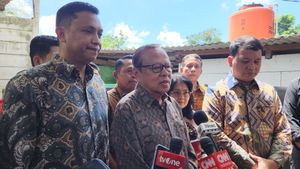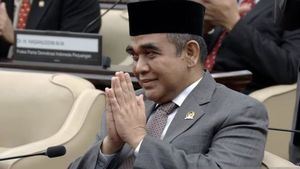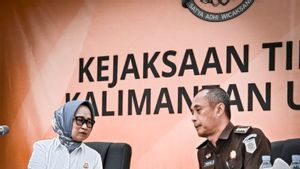JAKARTA - The Ministry of Education and Culture (Kemendikbud) has invited school teachers to use the emergency curriculum during the COVID-19 pandemic.
Mendikbud Nadiem Makarim said that the emergency curriculum is basically based on the 2013 curriculum. However, there is a simplification of basic competencies in each subject. This is because there are limitations to the education system in student distance learning.
"This emergency curriculum simplifies the basic competencies for each subject, so that it focuses on essential competencies and competencies that are prerequisites for continuing learning to the next level," said Nadiem in a virtual press conference, Friday, August 7.
Nadiem said, this emergency curriculum allows teachers to really focus on what is essential. The basic competencies in each subject are made in depth. Then, the implementation of this curriculum is valid until the end of the school year.
"I emphasize that education units are not obliged to follow this emergency curriculum. If they feel comfortable using the 2013 national curriculum, please," said Nadiem.
For teachers, the emergency curriculum can reduce the teaching burden because it provides a simple curriculum reference and improves the psychosocial well-being of teachers.
For students, the emergency curriculum has an impact, namely being not burdened with the demands of completing all curriculum achievements and improving their psychosocial well-being.
"Meanwhile, the impact on parents facilitates learning assistance at home. The psychosocial welfare of parents also increases," he said.
Meanwhile, for schools that had already simplified the curriculum independently, Nadiem also invited schools to use the option to carry out the simplification independently.
The English, Chinese, Japanese, Arabic, and French versions are automatically generated by the AI. So there may still be inaccuracies in translating, please always see Indonesian as our main language. (system supported by DigitalSiber.id)













